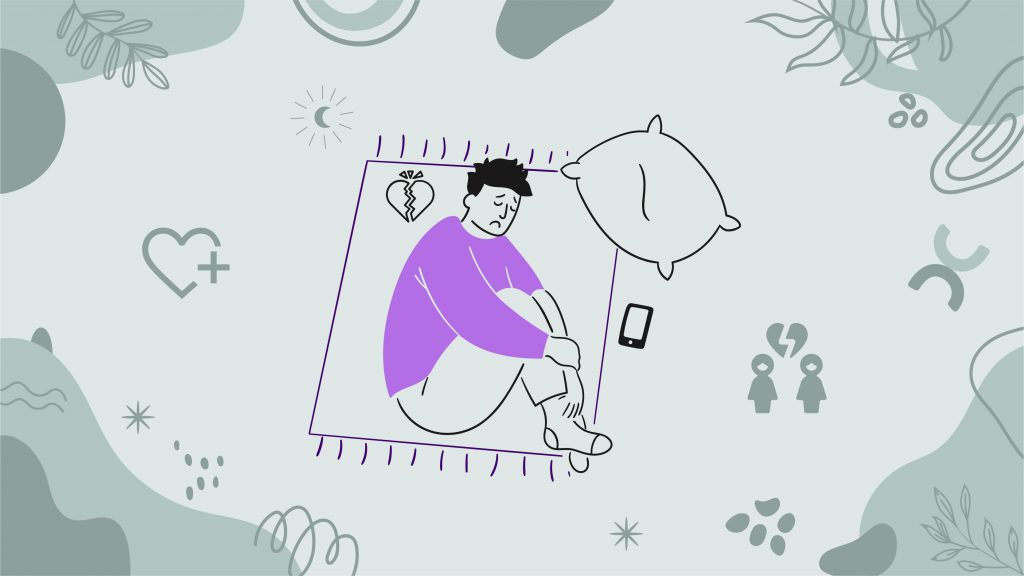Embrace the Imperfect Self
You know how it feels like we’re bombarded with images of flawless perfection everywhere we look? It’s like every scroll on social media or glance at a magazine cover is a reminder of how we’re supposed to look, act, and be.
But let’s be real here—the pursuit of self-acceptance in a world obsessed with perfection can sometimes feel like trying to climb Mount Everest without a map.
We’ve all been there, right? Comparing ourselves to others, the self-doubt that creeps in when we don’t measure up to those unrealistic standards of beauty or success. It’s like we’re constantly in a battle against our own inner critic, telling us we’re not good enough, not smart enough, not attractive enough—you name it.
And let’s not forget the pressure to fit into these cookie-cutter molds society expects us to squeeze into. It’s exhausting trying to keep up with these impossible ideals, and it can leave us feeling inadequate, with a nagging sense of low self-esteem that just won’t quit.
But here’s the thing—we’re all beautifully imperfect. Our quirks, flaws, and differences are what make us unique and special. It’s about time we stop chasing this elusive idea of perfection and start embracing our imperfect selves for who we truly are.
Unveiling the Inner Turmoil
On a neurological and psychological level, the journey to self-acceptance delves deep into the inner workings of our minds and bodies. The brain’s reward and pleasure centers, including the limbic system and neurotransmitters like dopamine and serotonin, play a pivotal role in shaping our perceptions of self-worth and acceptance.
When we engage in self-critical thoughts or compare ourselves unfavorably to others, our brain’s reward system can become dysregulated. Negative self-talk and feelings of inadequacy can trigger stress responses, leading to increased cortisol levels and a heightened sense of anxiety and self-doubt.
Over time, this pattern can become ingrained, making it challenging to break free from the cycle of self-criticism and negativity.
On a deeper level, let’s explore how our brain processes and responds to the journey of self-acceptance. Our brain is like a complex orchestra, with different regions and neurotransmitters playing distinct roles in shaping our self-perception.
First up, let’s talk about the limbic system, often referred to as the brain’s emotional center. This intricate network includes structures like the amygdala, responsible for processing emotions, and the hippocampus, involved in memory formation.
When it comes to self-acceptance, the limbic system plays a crucial role in how we interpret and respond to our thoughts and feelings about ourselves.
Now, let’s zoom in on two key neurotransmitters that influence our sense of self-worth: dopamine and serotonin. Dopamine, often known as the “feel-good” neurotransmitter, is released when we experience pleasure, achievement, or reward. It’s like a pat on the back from our brain, reinforcing positive behaviors and experiences.
On the flip side, serotonin regulates mood and emotions, contributing to feelings of well-being and contentment. When these neurotransmitters are in balance, we tend to have a more positive outlook on ourselves and life in general.
However, when we engage in self-critical thoughts or compare ourselves negatively to others, it can throw off this delicate balance. The brain’s reward system, which is wired to seek pleasure and avoid pain, can become dysregulated.
This dysregulation can lead to increased cortisol levels, the body’s primary stress hormone, triggering the familiar sensations of anxiety, self-doubt, and inadequacy.
Over time, this pattern of negative self-talk and critical comparison can create neural pathways that reinforce these harmful beliefs. It’s like a groove in a record that keeps playing the same tune, making it challenging to break free from the cycle of self-criticism and negativity.
Understanding these neurological and psychological processes is key to unraveling the inner turmoil associated with self-acceptance.
By recognizing how our brain responds to our thoughts and emotions, we can take proactive steps to cultivate a more compassionate and accepting relationship with ourselves.
Steps Toward Self-Acceptance
Absolutely! Let’s dive into actionable steps that can help cultivate self-acceptance and improve overall well-being:
- Mindfulness and Self-Awareness: Begin by practicing mindfulness techniques such as deep breathing, meditation, or body scans. These practices help you become more aware of your thoughts and emotions without judgment. When negative thoughts arise, acknowledge them without getting swept away by them. Instead, focus on responding with kindness and understanding towards yourself. This mindful approach can gradually shift your perspective and promote self-acceptance.
- Reframing Negative Self-Talk: Challenge negative self-talk by questioning its validity and replacing it with more realistic and positive affirmations. For instance, if you catch yourself thinking, “I’m not good enough,” reframe it to, “I am worthy and capable of growth.” Practice this reframing consistently to rewire your mindset towards self-acceptance and self-compassion.
- Celebrate Your Strengths: Make a habit of celebrating your unique strengths, accomplishments, and resilience. Keep a journal where you write down achievements, no matter how small, and reflect on moments when you felt proud of yourself. Recognizing your strengths reinforces a positive self-image and fosters self-acceptance.
- Set Boundaries: Establish healthy boundaries in your relationships and daily life. Learn to say no to activities or commitments that drain your energy or compromise your well-being. Prioritize self-care by allocating time for rest, relaxation, and activities that nourish your mind, body, and soul.
- Practice Self-Compassion: Treat yourself with the same kindness and compassion you would offer to a close friend facing challenges. When faced with setbacks or mistakes, practice self-compassion by acknowledging your humanness and offering words of encouragement and support to yourself.
- Seek Support: Don’t hesitate to reach out for support from trusted friends, family members, or mental health professionals. Talking about your feelings and experiences can provide valuable insights, perspective, and validation, fostering self-acceptance and emotional well-being.
By incorporating these actionable strategies into your daily life, you can nurture a more compassionate and accepting relationship with yourself, leading to improved overall well-being and a greater sense of self-acceptance.
Subscribe to newsletter
Get your Gut Health Starter Guide right now.
Elevate your Tuesdays with practical, science-backed wisdom propelling you forward on your gut health journey.

Journey to Self-Acceptance
In a bustling city, amidst the hustle and bustle of everyday life, Sarah found herself caught in a whirlwind of self-doubt and criticism. For years, she had grappled with low self-esteem, constantly feeling like she fell short of some invisible standard of perfection. Every mistake or imperfection seemed like a glaring flaw, amplifying her inner critic’s voice that whispered, “You’re not good enough.”
Sarah’s journey to self-acceptance began with a moment of reflection, a realization that the pursuit of perfection was an unattainable and exhausting endeavor. “I was tired of constantly striving for an ideal that didn’t exist,” she recalls. “It took a toll on my mental and emotional well-being, affecting my confidence and relationships.”
Determined to break free from this cycle, Sarah turned to practices of self-compassion and mindfulness. She started small, incorporating moments of self-kindness into her daily routine. When negative thoughts surfaced, she challenged them with affirmations of self-worth and resilience. “Treating myself with compassion was like offering a lifeline to my wounded self,” Sarah shares. “It allowed me to acknowledge my struggles without judgment and embrace my imperfections as part of my journey.”
As Sarah continued to practice self-compassion, she noticed a gradual shift in her self-perception. Instead of fixating on her flaws, she began to appreciate her unique strengths and accomplishments. “Reframing negative thoughts was empowering,” she notes. “I started focusing on what I could control and celebrate rather than dwelling on what I perceived as shortcomings.”
Through this journey, Sarah’s relationships also blossomed. Her newfound sense of self-acceptance radiated outward, fostering deeper connections based on authenticity and vulnerability. “When I accepted myself, flaws and all, I found that others accepted me too,” she reflects. “It strengthened my relationships and allowed me to show up more authentically in my interactions.”
Professionally, self-acceptance opened doors to new opportunities and growth. “I stopped holding myself back out of fear of failure,” Sarah explains. “I took risks, pursued my passions, and embraced challenges as opportunities to learn and grow.”
Today, Sarah’s life is a testament to the transformative power of self-acceptance. “I no longer strive for perfection,” she proudly declares. “I embrace my imperfect, authentic self with love and compassion.”


















